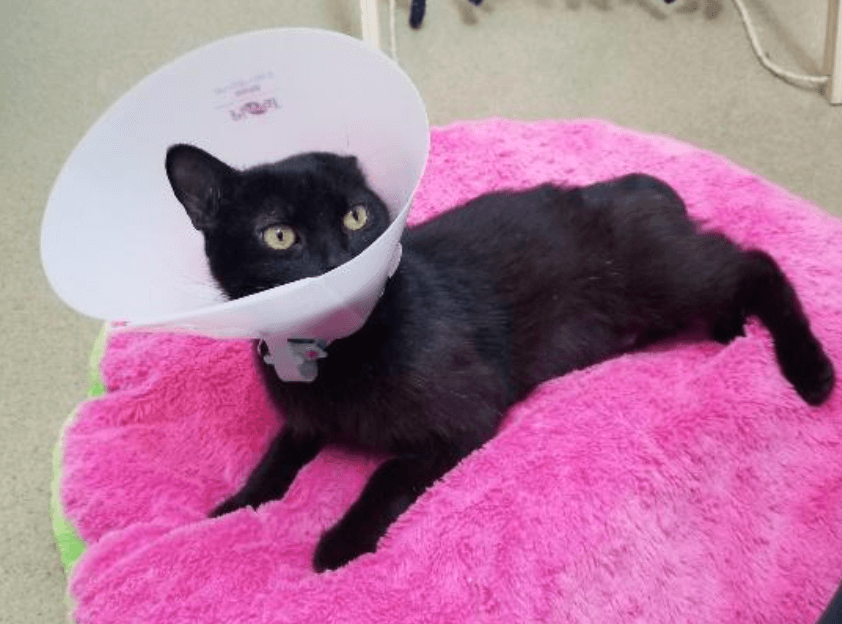
In Chula Vista, pet license fees and donations are an important source for funding essential animal services. When you license your pet, know that you are doing your part to help your local shelter workers care for lost, injured and abused animals.
By The Numbers
3,700
Animals sheltered
per year
1,700
Adoptions
per year
770
Lost pets reunited
35
Employees
10
Volunteers
Q&A
Talkin' Shop
Here’s what’s been going on at Chula Vista Animal Services.
What is something you are really proud of as an organization? Like most shelters, days are busy, and staff must work hard to keep up with the daily needs of the community. As a Municipal shelter, we cannot turn away strays. However, our staff always pulls together and works well as a team, even on the toughest of days.
What makes your organization unique? In 2023 we will be celebrating 100 years of providing animal services for Chula Vista.
What is a program that you run that is important for people to know about? Our Trap Neuter Return for community cats, and our Low-income Spay/Neuter for dogs and cats.
What is the biggest obstacle(s) your organization faces while caring for animals? Our community has grown so much over the last several years, and our team has so many ideas on how to offer more services/resources to assist our community, but staffing continues to be an issue.
Can you share a story of a specific pet you’ve helped? What was the case and what was the result? Chicky was a 2-year-old black domestic short-haired cat brought in with a severely degloved tail. The injury was older and required multiple surgeries, medications and continued medical rechecks. After 2 months, Chicky was released for adoption. Her loving, outgoing personality ensured she was quickly adopted by a family that couldn’t help by fall in love with her.

In your words, why are pet licenses important? There are SO many reasons to license. One is public safety and ensuring we maintain California as a rabies-controlled state (and without incidence of pets contracting rabies) to ensure our communities are safe. Two, it is a super easy (and helpful) way to get pets home WITHOUT having to enter shelters. If a community member can easily contact a pet parent and return the dog directly, it saves stress, time, money, and prevents over-crowding (more money and stress) in shelters.
How do monetary donations and licensing fees help out around your organization? These allow us to continue to maintain a contract for consistent food deliveries, including medically required diets, medical supplies and continued care as some of our larger dogs are with us for a year or more! These also help cover the costs associated with Trap-Neuter-Return, allowing residents to utilize our TNR program at no cost while greatly reducing the number of cats in communities and shelters.
How can people help or volunteer? Monetary and in-kind donations are always appreciated. We have an Amazon Wishlist. Volunteering time to walk and/or socialize, clean (it never ends!) and assist with filing and office work are always welcome. Those interested can learn more and apply here.
If someone wants to donate pet supplies, what are the items that are needed most? Kitten bottles, miracle nipples, peanut butter, can food, towels, and Kongs (extra large).
To what extent do pet license fees contribute to your overall budget? License fee revenue contributions make up a small portion of the overall budget. In FY22, we received $130,591 in license revenue.
What does the day of a shelter worker/volunteer normally look like? Mornings ALWAYS start with cleaning! Morning cleaning takes roughly 2 hours. By this time, the front doors are open, and our community members are walking through. Some staff are manning the front desk, assisting with licensing, rabies vaccination, and those interested in adoption or in reuniting lost pets. Other animal care staff are taking in lost pets, facilitating interactions with the animals with potential adopters, assessing behavior to ensure a good match between family and dog, researching microchips, and educating clients on Trap-Neuter-Return, among other tasks.
Some staff continue to ensure the animal areas are kept clean and laundry (which seems to never end) is still rolling along. Our animal care staff are also doing their best to return missed calls and assist online clients with inquiries. Our facility is fortunate to have a full medical team to ensure the animals are healthy, receive treatments as needed and perform spay/neuter and other necessary procedures such as dental. Before you know it, it is time to close, and staff check everyone to ensure they are settled in for the night!
What should people know before adopting a pet? Having a pet requires time and attention daily. Walks, training and socialization are necessary even for the most well-behaved dog. Think about your daily schedule: how much time will the pet be alone, and how much time do you have to give? Please check with landlords or city municipal codes to ensure you are permitted pets (including breeds and sizes) to prevent having to return after falling in love. It is also important to find the right match for both the pet and the family. Adopting is more like dating, not window shopping.
What is your best advice for pet owners? Train, socialize, and exercise!
What is an easy way for community members to help support your organization? Practice responsible pet ownership, adopt, foster, follow us on Facebook and Instagram and share our message!
For more information about Chula Vista Animal Services, visit
www.chulavistaca.gov/departments/animal-care